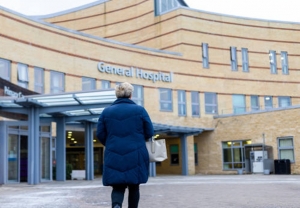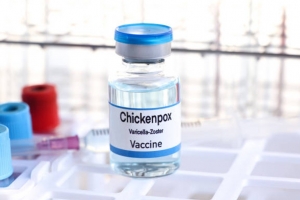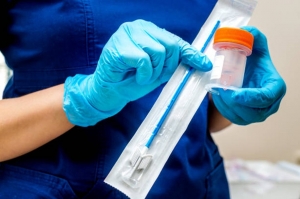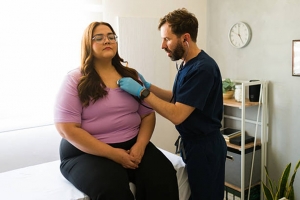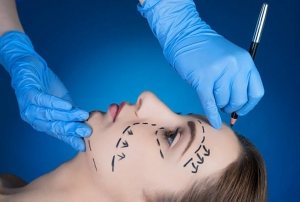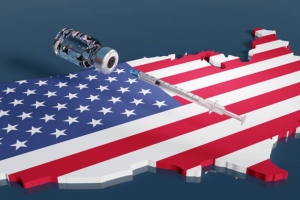East Surrey Hospital Downgraded After Latest CQC Inspection
East Surrey Hospital in Redhill has been rated “requires improvement” by the Care Quality Commission (CQC), a step down from its previous “outstanding” grade. Inspectors visited in September 2024, and although the report has only just been published due to restructuring within the watchdog, some corrective measures have already been introduced.
The review highlighted declines in several key areas. “Medical care” dropped from outstanding to requires improvement, while “safe” and “well-led” both slipped from good to requires improvement. The hospital retained an outstanding rating for “caring” and a good rating for “effective” and “responsive”, but the overall result reflected the weaker scores in leadership and safety.
Paul Simpson, acting chief executive of Surrey and Sussex Healthcare NHS Trust, said the inspection took place during a particularly difficult period. He stressed that while inspectors acknowledged the dedication and compassion shown by staff, improvements were needed in how services were managed and in maintaining patient safety. He added that ensuring safe, high-quality care remained the trust’s top priority.
Since the inspection, the trust says it has taken significant action, including strengthening governance systems, introducing a round-the-clock Freedom to Speak Up service, and enhancing medicines safety protocols. Leaders at the trust say they are committed to regaining an outstanding rating across all services and restoring public confidence.
Free Chickenpox Vaccine to Be Rolled Out for Children
From January next year, the NHS will begin offering a free chickenpox vaccine to children in England, Wales and Northern Ireland. The jab will be given in two doses at 12 and 18 months, alongside the current MMR vaccine for measles, mumps and rubella. A separate catch-up programme will also be in place to ensure slightly older children don’t miss out. Until now, parents wanting protection for their child have typically had to pay privately, with costs reaching around £200.
Chickenpox is usually mild, but in some cases can lead to severe complications, including pneumonia, encephalitis and, very rarely, death. It is more dangerous for babies, adults and pregnant women. Health experts say the vaccine will significantly reduce the number of infections and hospitalisations. The Joint Committee on Vaccination and Immunisation (JCVI) gave the go-ahead last year, following concerns in previous decades that reduced exposure could increase cases of shingles later in life.
The government believes the rollout will not only protect children but also ease the burden on working families, with chickenpox currently estimated to cost the UK £24m a year in lost productivity. Health Minister Stephen Kinnock said the decision puts “children’s health first” and will save parents from having to take time off work.
Doctors and parents alike have welcomed the move, with some describing the vaccine as potentially “life-saving.” Scotland is expected to follow with a similar programme, although no date has yet been confirmed. Meanwhile, the government is planning new campaigns to encourage vaccine uptake, after data showed childhood immunisation rates remain below target levels.
Home Cervical Screening Kits to Be Offered in England
Individuals who miss their cervical screening appointments will soon be given the option to test themselves at home. Under new plans from the Department of Health and Social Care (DHSC), those who do not respond to a screening invite within six months will automatically be sent a self-sampling kit, which can be returned by pre-paid post.
The move follows large-scale trials – including YouScreen and HPValidate – which showed that at-home testing could significantly increase participation. YouScreen suggested up to 400,000 extra people could be screened annually, while HPValidate identified the most accurate and user-friendly swabs for home use. Based on this evidence, the UK National Screening Committee recommended self-sampling earlier this year, and NHS England intends to begin rolling it out from 2026.
If a home test detects high-risk HPV – the virus responsible for almost all cervical cancers – patients will be referred for a follow-up appointment with a clinician. While self-sampling cannot currently identify abnormal cervical cells, experts believe it is a vital step in helping more people take part in screening. Surveys show that embarrassment, fear of pain, and time pressures are key reasons why many do not attend appointments.
Michelle Mitchell, chief executive of Cancer Research UK, welcomed the move: “Giving people the choice to test in their own home will break down barriers, increase uptake, and ultimately save lives.”
Lung Cancer Screening Extended Across Norfolk and Waveney
A successful lung health initiative is being widened across Norfolk and Waveney after proving effective in detecting cancer at earlier stages. The programme, aimed at smokers and former smokers aged 55 to 74, first began in Great Yarmouth in 2022 before moving into Lowestoft. It will now be available to thousands more residents across the region.
Figures from NHS Norfolk and Waveney Integrated Care Board reveal that, of 8,000 people who underwent checks, 70 cases of lung cancer were identified. Encouragingly, 70% of these diagnoses were made at an early stage when treatment is most effective. Dr Suzanne Phillips, from the ICB, said the response so far has been “fantastic”, and that the expansion would help more people benefit from potentially life-saving scans.
The rollout is being introduced in phases, with eligible individuals invited directly. Dr Phillips emphasised the importance of waiting for an invitation before booking, adding that lung cancer often has few warning signs in its early stages, making proactive screening essential.
To mark the expansion, a community event will be held on Tuesday 26 August at the TIC mobile unit, located in Sainsbury’s car park on King’s Lynn’s Hardwick industrial estate. Running from 10:00 to 13:00, the event will offer free health checks and provide information on the screening process.
NHS Waiting List Sees Slight Rise as Experts Warn of Treatment Shortfall
England’s NHS waiting list grew slightly in June, reaching 7.37 million people — up by 10,000 from the previous month. While this is still lower than the peak of 7.62 million recorded last year, analysts suggest the numbers may be influenced by patients being removed from the list without receiving treatment. Such removals can occur when patients recover, seek private care, or, in some cases, pass away.
Hospitals have been encouraged for years to carry out “validation” exercises to remove people who no longer require treatment, with financial incentives offered for doing so. Documents seen by the BBC reveal that between March and April alone, these checks reduced the list by 100,000. Without this, the total would have risen. The Nuffield Trust, however, believes the true figure could be even higher, averaging more than 200,000 removals per month over the last two years.
Dr Becks Fisher from the Nuffield Trust warned that while validation is often necessary, it can give the misleading impression that waiting list reductions are the result of treating more patients. In reality, referrals continue to outpace treatments delivered.
The Department of Health and Social Care defended the approach, insisting that validation helps ensure patients receive the right care promptly and improves efficiency, while stressing that the NHS is still treating increasing numbers of patients.
Male Students Urged to Break Nursing Stereotypes
England’s Chief Nursing Officer, Duncan Burton, is calling on male students receiving their exam results to consider a career in nursing and healthcare, challenging outdated views of the profession. As the first man to hold the role, Burton emphasises the rewards and opportunities nursing offers, highlighting that men currently make up just one in eight nurses and health visitors in the NHS.
His appeal coincides with the government’s new Graduate Guarantee, which ensures job opportunities for every newly qualified nurse and midwife this year. Students entering UCAS clearing are being encouraged to explore healthcare degrees, leading to over 300 career paths, including nursing, midwifery and allied health professions such as occupational therapy and radiography. Apprenticeships and healthcare support worker roles also offer alternative routes for those not choosing traditional university study.
Burton, who has worked in nursing for nearly three decades, believes the workforce should reflect the communities it serves, stating that diversity leads to better patient care. He urges young men not to be discouraged by stereotypes, stressing that nursing welcomes people from all backgrounds.
Father and son Peter and Connor McKiernan, both nurses at Blackpool Victoria Hospital, share how their careers have been fulfilling and varied. From emergency care to specialist roles, they demonstrate that compassion, resilience and commitment - not gender - define success in nursing.
Crackdown Planned on Unsafe Cosmetic Procedures in England
The government has unveiled plans to tighten regulation on non-surgical cosmetic treatments in England, targeting unqualified practitioners offering high-risk procedures like Brazilian butt lifts (BBLs). Under the proposals, only trained healthcare professionals will be permitted to perform such invasive treatments, and a licensing system will be introduced for clinics offering injectables like Botox and dermal fillers.
This move follows increasing concerns over unsafe practices within the booming cosmetic industry, which currently operates with limited oversight. Procedures marketed as ‘non-surgical’, such as liquid BBLs, still carry serious risks, including permanent injury and even death. The case of Alice Webb, who died in 2024 after undergoing one of these treatments, has brought further urgency to calls for reform.
The new rules will introduce age restrictions to protect under-18s from being influenced by harmful beauty trends on social media. Clinics will also need to meet strict safety, insurance, and training standards to obtain licences, though the full implementation of these measures could take years, pending public consultation and parliamentary approval.
Health Minister Karin Smyth condemned the “Wild West” culture within the sector, stating the reforms aim to safeguard the public and support responsible practitioners. Industry bodies, including Save Face and the JCCP, have backed the proposals, calling them vital for public safety.
HHS Withdraws £376m mRNA Vaccine Funding Amid Safety Concerns
The US Department of Health and Human Services (HHS) has announced it will cancel around £376 million in funding for mRNA vaccine research, halting 22 projects from major pharmaceutical firms such as Pfizer and Moderna. These initiatives had been focused on developing vaccines against respiratory viruses like bird flu, influenza, and Covid-19.
US Health Secretary Robert F Kennedy Jr, known for his controversial views on vaccines, said the decision was based on concerns about the safety and long-term effectiveness of mRNA technology. He stated that after a thorough review, his department concluded these vaccines offered limited protection against respiratory viruses and may even contribute to virus mutation and prolonged outbreaks.
Medical experts, however, have condemned the move. Dr Paul Offit, a leading paediatrician and vaccine specialist, argued that mRNA vaccines have proven to be both safe and vital in the fight against severe infections like Covid-19. He emphasised that viruses naturally mutate over time, regardless of vaccine use, and warned that the funding cut could weaken the US response to future pandemics.
The HHS plans to redirect funding towards vaccine platforms with longer-established safety records. This decision follows other sweeping changes under Kennedy, including the removal of the Covid-19 vaccine from official guidance for healthy children and pregnant women, and the dismissal of a key immunisation advisory committee.


